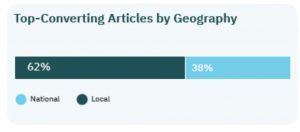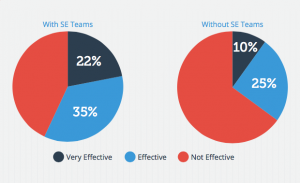Who makes a good leader? This is a question that experts have contemplated across countless leadership books and articles.
Business owners and executives around the world have different perspectives on the approaches and qualities required for successful leadership. History makes it evident that great leaders emerge from all kinds of backgrounds, genders, cultures, and ethnicities.
However, there still remains the question regarding the age at which an individual can effectively assume a leadership role in business.
Does one need to be over a certain age to be considered a leader?
I agree that it is a bit simplistic to just state that age is nothing but a number in this regard. It’s true that many older employees find it difficult to recognize leadership when they are significantly older than their boss. This creates uneasiness between young CEOs and managers and older employees.
But when it comes right down to it, the most important factor is competence in holding a leadership position. A natural born leader who is adept at doing what the job asks for will do well in this position, whether they are 25 or 50.
Young leaders can and should be defined by many other attributes, not just their age. Unfortunately, this particular subset of leaders has to deal with a number of negative connotations about being young. Assumptions are made about them being handed the job by an acquaintance, and it is presumed that they will not know how to get anything done. There is no basis behind conjectures such as this, but uncomfortable employees sometimes find the need to make unreasonable remarks.
The weight of wisdom and experience
The problem is explained by Al Coleman Jr. in his book, “Secrets to Success: The Definitive Career Development Guide for New and First-Generation Professionals”. According to him, most people view a “leader” as someone who is capable of guiding, directing and facilitating others because of their previously successful experiences.
However, there really is no “perfect” age to be the most successful leader. It is impossible to pinpoint the age at which someone can perform best in any given role. Natural born leaders tend to exhibit leadership abilities from an early age, going from strength to strength faster and earlier than their peers. In fact, modern research confirms that the foundations of leadership are established early in life, as cognitive abilities of children strongly influence their likelihood of becoming successful in corporate life.
What age does affect, is our perception of leaders. Young professionals swiftly rising to the top of the corporate ladder may be perceived negatively by their more seasoned counterparts. Although there is insufficient empirical evidence to confirm it, business owners, CEOs and managers are valued because of their wisdom, which comes from years of experience.
But as the world moves towards a more dynamic and tech-savvy model of business, the age of our leaders appears less relevant. It is their brilliance, their energy, and ability to adapt to the modern corporate world that takes greater precedence.
Of course, it is true that experience counts. And age can be a factor that adds experience. You can understand the fundamentals of a discipline overnight, but it may take years to develop sufficient judgement. And yet, experience gives leaders perspective only when it is applied to looking ahead.
A 2011 study presented at University of Queensland School of Psychology analyzed the relationship between age and wisdom among older leaders. It was found that the most effective leaders were the ones who were perceived as having a combination of relevant knowledge, tolerance for different views, understanding of content, and ability to deal with certainties.
However, while the study correlated wisdom to effective leadership, it was unable to find a link between wisdom and age, or between age and leadership skills. The study was unable to support the hypothesis that leaders become wiser with age.
It is not necessary for experience to translate to strong leadership skills. No worker should be kept from a position of leadership merely because of their age.
It is undeniable: with inter-generational leadership teams becoming the norm in modern start-ups, it is now no longer uncommon to see staff being managed by leaders who are younger than them.
Younger leaders who possess the perfect mix of leadership talent and personality are able to generate a sense of enthusiasm for the tasks at hand and emanate a sense of vitality that people need to feel from them. They keep their team reminded of the value of their contributions.
As for these young bosses, learning to work with team members who believe that leadership ability comes through experience, the challenge ultimately helps them become stronger leaders in the end.
Business & Finance Articles on Business 2 Community(35)
Report Post




